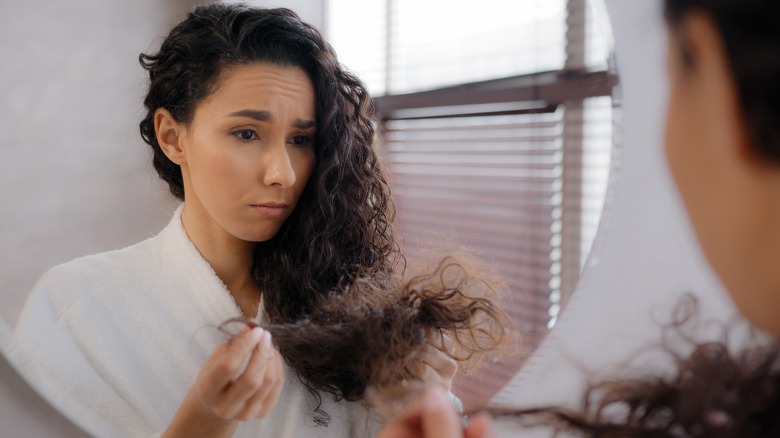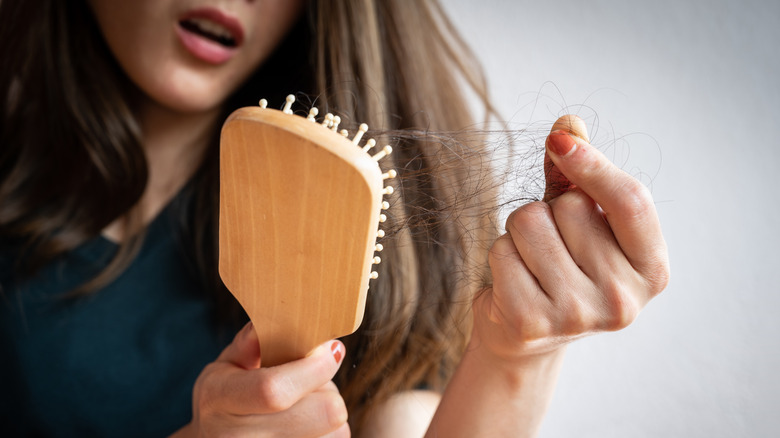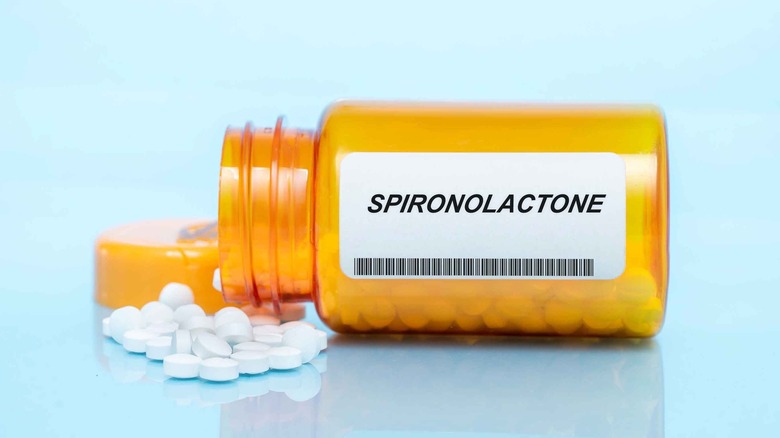Spironolactone Is Commonly Used For Acne, But Can It Treat Hair Loss Too?
If you have ever struggled with hormonal acne, you may have come across spironolactone. According to the American Academy of Dermatology Association, spironolactone is mainly used to treat people suffering from high blood pressure or fluid retention. Dermatologists have also used the drug to help clear up inflammatory and stubborn acne, but only for those who qualify.
Spironolactone is a strong drug, and most dermatologists will only prescribe it to their patients after other acne solutions have failed. It is also only used for female-bodied people, as it's been associated with negative side effects, such as enlarged breasts, in male-bodied people. But recently, studies have found that spironolactone can do more for our bodies than we once thought. After many women used the product to treat other ailments like acne, PCOS, or hypertension, they also began to see improvement in their hair growth, leading some doctors to prescribe the drug to patients suffering from hair loss.
Who can use spironolactone to treat hair loss
If you have been experiencing hair loss and have tried an array of treatments without any luck, you may want to ask your doctor about spironolactone. But don't get your hopes up too high. While the drug has been proven to help with hair growth, it only works on a small population of people. According to Healthline, it is not prescribed to men due to side effects and only women who have hair loss due to certain reasons can use it. In fact, only those who have been diagnosed with female-pattern hair loss due to hormonal causes can use spironolactone for hair growth.
This means that, unfortunately, if you have hair loss due to things like stress or chemo treatment, this won't work for you. But for those that fit the criteria, spironolactone may just be the solution you've been hoping for when it comes to getting your hair back.
How spironolactone for hair loss works
If you are experiencing hair loss due to an increase in the male sex hormones or other hormonal factors, your doctor may prescribe spironolactone to help treat it. According to Flora Kim, MD, FAAD, a board-certified dermatologist, spironolactone works by increasing estrogen levels in the body, which are known to directly help women avoid hair loss even when experiencing hormonal changes during events such as menopause or postpartum (via Byrdie).
Spironolactone also works by blocking testosterone. When testosterone levels are high in women, they are often genetically predisposed to hair loss. Spironolactone works to stop the testosterone production and prevent the hair from falling out. If your doctor does prescribe spironolactone to you, you can expect to take 100-200 mg orally every day for at least six months. Just don't expect your hairline to grow back overnight — spironolactone helps stop the hair from growing out, but the process of that occurring and the hair growing back can take a while. Patience, and following up with your doctor, is vital with this hair loss treatment.


